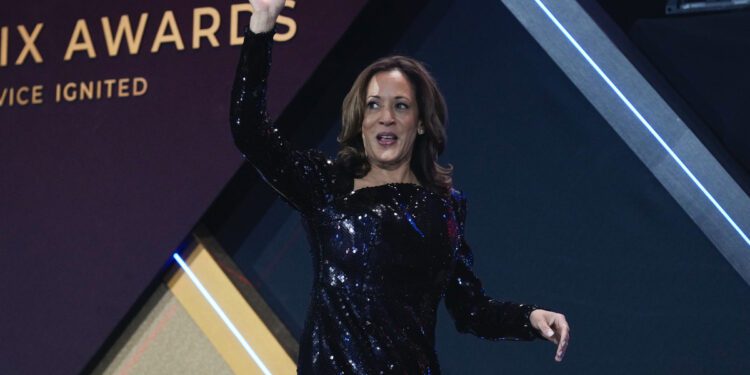In late summer, Kamala Harris’ since-defeated presidential campaign declined an offer to spend millions on efforts aimed at mobilizing Black voters — a key demographic that Donald Trump successfully courted during his victorious 2024 bid to reclaim the presidency.
In September, the Congressional Black Caucus (CBC) presented a $10 million plan to Harris’ campaign, designed to target and persuade undecided Black voters in swing states. According to a memo obtained by POLITICO, the plan was ultimately rejected by the campaign, despite its potentially significant reach in battleground areas. Sources familiar with the discussions, who requested anonymity, confirmed the rejection.
The CBC’s proposal, titled the “Freedom + Opportunity Bus Tour,” outlined a strategy to connect with Black voters just weeks before the election. The plan aimed to mobilize those on the fence, with less than 50 days left before Election Day. It included a $1.5 million allocation for a bus tour that would visit critical battleground states, plus $8.3 million for social action groups focused on House districts with sizable Black populations (at least 8%).
The tour would have made 12 stops in key states where Trump was making strong inroads: Pennsylvania, Georgia, Michigan, North Carolina, Nevada, and Arizona. It also proposed a stop in Nebraska’s 2nd Congressional District, which Harris ultimately won.
While the reason for rejecting the proposal remains unclear, the campaign’s decision has raised some eyebrows within the Democratic Party. Critics point out that, with more than $1 billion raised for the campaign, the $10 million request was a relatively modest ask, especially given the stakes in critical states.
Despite turning down the bus tour, the Harris campaign did take steps similar to those suggested in the CBC’s plan. It began tapping social media influencers to engage voters and held rallies with established civil rights and labor organizations. Additionally, Harris headlined the CBC’s 53rd Annual Legislative Conference in mid-September, where she delivered a nine-minute speech highlighting the theme of “hard work” and underscoring her vision for the nation.
The CBC’s proposal also included outreach to Latino and Asian American organizations, with a focus on building multiracial coalitions. The goal was not to duplicate Harris’ existing efforts but to supplement and enhance them, particularly in regions where diverse voter bases could make a difference.
One element of the plan that was not pursued by the campaign was a fundraising dinner scheduled for September, which aimed to raise $1 million with tickets priced at $5,000 each. Despite the rejection of the broader proposal, Harris’ campaign continued to engage with Black, Latino, and other communities in various forms as the election approached.
The rejection of this offer has drawn attention not only to the strategic choices within Harris’ campaign but also to the ongoing importance of Black voter turnout in key battleground states, an issue that could have had significant implications for the general election outcome, which Harris lost to Donald Trump.
Discover how election will affect American workers:


